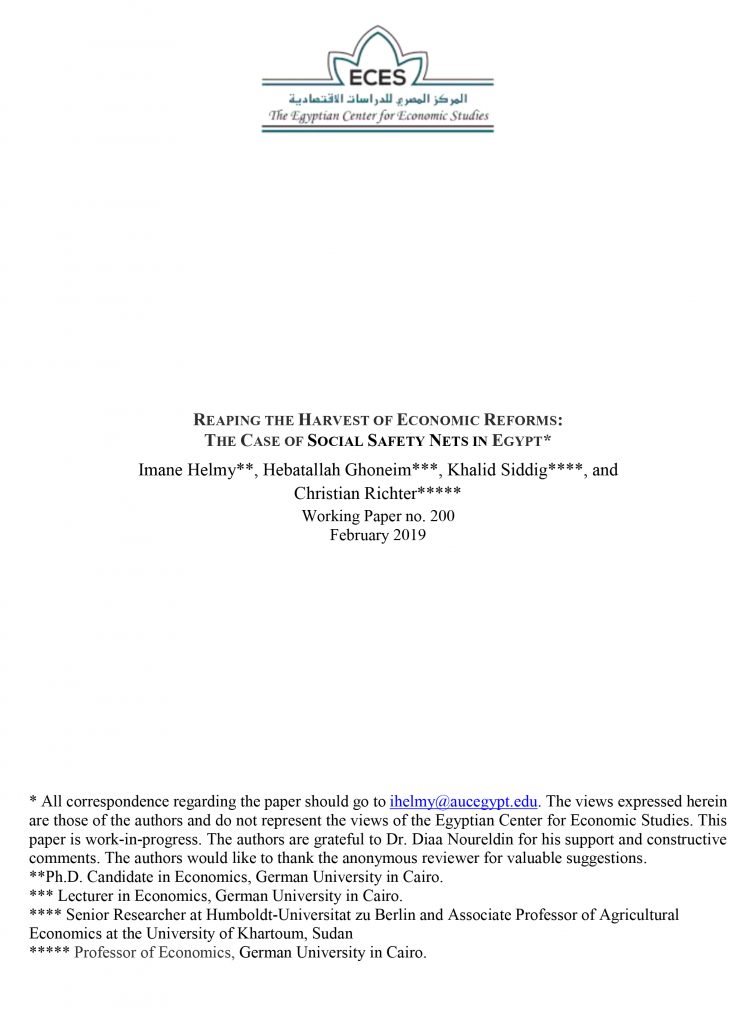This study explores the economic impact of the latest fiscal policies and social safety-net measures in Egypt, using a disaggregated Social Accounting Matrix and a Computable General Equilibrium model.
Additionally, it examines the effect of the use of savings to expand pro-poor spending. This paper is differentiated by modeling a number of special features of value-added taxes and stimulating the combined effect of phasing out price subsidies of energy and food products. The findings suggest that recent fiscal reforms had a negative impact on private consumption, domestic demand and production. The increase in investment demand is mainly driven by a boost in construction sector that highly depends on unskilled labor and provides real estate products that are mostly demanded by high-income households. The results signal that Egypt’s progress toward achieving structural transformation might be hindered, which increases the likelihood of reform reversals. The R&D sector was positively affected by the differentiated VAT rate thathad a detrimental effect on tobacco, beverages production and telecommunication. The results indicate a harmful welfare impact on middle-income households, which are the most affected group by removing subsidies due to reduced wages and profits as well as price hikes. The planned full removal of energy and food subsidies over the coming years necessitates undertaking sustainable policy alternatives such as expanding pro-poor spending. This option is superior to other scenarios with respect to household welfare, production and demand for skilled labor in the R&D, health, and education sectors.

Reaping the Harvest of Economic Reforms: The Case of Social Safety Nets in Egypt
11-03-2019
Author(s): Imane Helmy, PhD, Candidate in Economics, German University in Cairo; Hebatallah Ghoneim, Lecturer in Economics, German University in Cairo; Khalid Siddig, Senior Researcher at Humboldt-Universitat zu Berlin and Associate Professor of Agricultural Economics at the University of Khartoum, Sudan; Christian Richter, Professor of Economics, German University in Cairo
Publication Number: ECES-WP200-E
